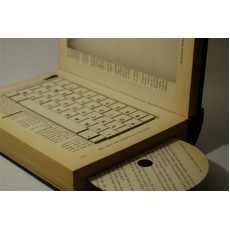Danticariat
Acceptam plata cu ramburs sau cu carte de credit prin PayPal.Daca ai intrebari despre noi sau produsele noastre, contacteaza-ne prin email sau telefon. Suntem un anticariat online cu sediul in Bucuresti.

01/07/2014
by Eli Lester
Like most of you out there, I spend a decent bit of time (probably more than I should) crawling around the Internet digging through the static. However, there are instances when I come across a thought-provoking piece of content. The latest such piece I found was not very illuminating in and of itself, but the bigger question it presents is something worthy of a discussion. The content was a poll hosted by Lifehacker titled "How Do You Prefer to Read Your Books?"
To date, slightly more than 4,000 people have responded and only 45% said that they still prefer physical books. The remainder are using some form of technology - smartphones, ereaders, tablets, audiobooks, and more. Granted, Lifehacker is certainly a tech-centric crowd, but still - 55% is a high number. Now, my question is not how you prefer to read your books, but the bigger idea.
Are physical books still relevant in today's technological age?

First, let's look at what is a book. Yeah, I know that you already know what a book is, but let's consider that a book is simply packaging - a medium for delivering a story. The same story or information can be delivered through any of the aforementioned technologies. Before you say that books have been around forever, think about what books replaced - the oral tradition of storytelling. How popular is verbal storytelling now? True, it does still exist, but the paradigm clearly shifted and it bears none of the weight that it once held in ancient times. Maybe now we're on the brink of another major shift.
To go back to the main question, my answer is yes, physical books are still relevant and I'll explain why. For a major shift from books to technological devices to take place, it has to start with children and in today's world, that means at school. Because the technology is still expensive enough, schools cannot afford to equip every student with a tablet or other device. This means that the current generation of children starting school will get accustomed to the tangible aspect of physical books and they will feel more natural than their technological counterparts.
In short, we're not there yet, but we're also not far away. How much longer do we have in the "Age of the Books?" Of course, it's just my guess, but I think that the change will start in the next ten years or so and I'm putting my bet on 2025. Schools will start issuing students multifunctional tablets and all of the textbooks and other printed matter will be delivered instantly through a Dropbox-like network. Add in another 20 years and we should be getting close to Ray Kurzweil's Singularity prediction.
What does this mean for those of us (myself included) that still prefer the tactile sensation and smell of physical books? Absolutely nothing. I don't think books will be relegated to an antique store oddity a la Back to the Future anytime soon. By the time that happens, I should be well-situated six feet under the ground (with a couple good books buried beside me). At least for our sake, I'm hoping that I'm right.
